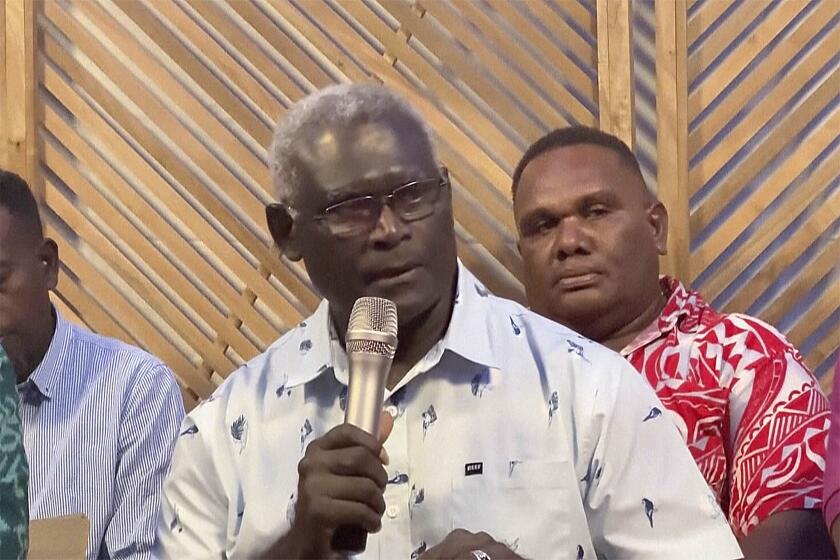The Peace Prize? Really?
Excessive praise can be unwelcome and embarrassing. Just ask President Obama, who awoke Friday to discover that he had been awarded the Nobel Peace Prize before he had completed even a year in office. Obama managed to be both abashed and appreciative in his response, but no amount of self-effacing spin can obscure the oddity of this award.
For the president’s critics on the right, the Nobel feeds a narrative in which Obama is more interested in flattering foreigners than in defending U.S. interests. To those in his restive progressive base, it appears that the peacemaker’s mantle has been draped on the shoulders of a president who is presiding over two distant wars and who may soon send as many as 40,000 more troops to Afghanistan.
For our part, we’re fans of the president. We endorsed him for the job, and we greatly prefer him to his predecessor. But it’s difficult to see why he deserves the peace prize so soon after taking office. The Nobel committee didn’t just embarrass Obama, it diminished the credibility of the prize itself, which traditionally rotates among world leaders (Willy Brandt, Mikhail Gorbachev), charitable organizations (Amnesty International, Doctors Without Borders) and humanitarians (Elie Wiesel, Mother Teresa).
Obama was cited for his “extraordinary efforts to strengthen international diplomacy and cooperation between peoples.” Yes, he has reached out to adversaries (notably Iran, with mixed results). Yes, he delivered an admirable speech in Cairo in which he called for “a new beginning between the United States and Muslims around the world.” Yes, he has called for a world without nuclear weapons. But all of these initiatives are, to use a polite word, aspirational.
By contrast, other political leaders have received the prize for real accomplishments (though a secondary purpose was to encourage further progress). That was the case with Anwar Sadat and Menachem Begin, who were awarded the 1978 prize for the Camp David peace accords, and, 20 years later, with David Trimble and John Hume, the Northern Ireland politicians who were honored for the Good Friday peace agreement. In 1973, Henry Kissinger and North Vietnam’s Le Duc Tho were recognized for a peace agreement that ultimately went awry, but at least there was an agreement. (Prophetically, Le Duc Tho declined the award because lasting peace hadn’t been established.)
It’s hard to escape the impression that Obama was honored because he isn’t George W. Bush. That’s an admirable trait, but it doesn’t entitle him to a distinction Alfred Nobel said should be conferred on “the person who shall have done the most or the best work for fraternity between nations, for the abolition or reduction of standing armies and for the holding and promotion of peace congresses.” We suspect that Obama would agree.
More to Read
Start your day right
Sign up for Essential California for news, features and recommendations from the L.A. Times and beyond in your inbox six days a week.
You may occasionally receive promotional content from the Los Angeles Times.






